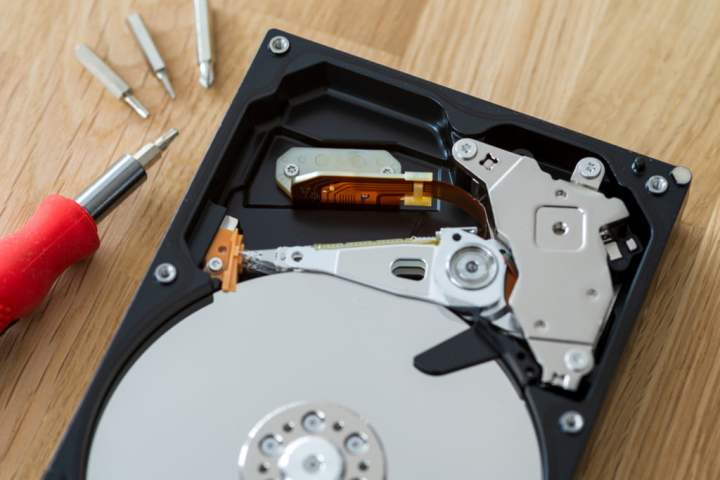If you’ve ever had a hard disk drive (HDD) fail on you, you’re certainly not alone. It turns out that this is actually a lot more common than most people think.
According to research carried out across a sample of over 17,000 hard drives, the average life span of an HDD is only two years and 6 months. Does that make the HDD one of the weakest components inside your PC?

Cloud storage and backup company Backblaze released an interesting report about the average time it takes for an HDD to fail. Backblaze examined a total of 17,155 HDDs of varying sizes and models. Based on that sample, it came to the conclusion that an HDD only functions for around two-and-a-half years on average.
The company was able to run this study on its own failed drives that were previously used in its data centers. This includes models from Seagate, Toshiba, or Western Digital (WDC). In total, 72 different models were included.
If the company only considered drives it no longer uses in its data centers, the sample would have been much smaller — 3,379 drives spanning 35 models. The average age would also be negligibly higher, reaching 2 years and 7 months.
Backblaze recorded the power-on hours of each drive, along with their failure dates, serial numbers, capacity, and SMART (Self-Monitoring, Analysis, and Reporting Technology) raw data. The study excluded all failed boot drives, drives with data errors or inconsistencies, and drives with no SMART raw attribute data.
In addition to exposing the short average life span of an HDD, the study also finds that Seagate drives are the most susceptible to failure, while WDC models saw the least casualties.
The massive Seagate 12TB ST12000NM0007 turned out to be the fastest to break, reaching an average age of 1 year and six months and a total of 2,023 failures. The only HDD to break down even more often was the Seagate 4TB ST400DM000 (5,249 failures), but it also lasted a lot longer on average — 3 years and 3 months.

Overall, Backblaze found that the average annualized failure rate (AFR) of its active HDDs was 1.4%, meaning that 1.4% of all of its HDDs failed each year. By the end of the first quarter of 2023, Backblaze was monitoring a total of 241,678 drives, but this also includes SSDs. To calculate the AFR, it excluded boot drives and drives it used for testing, which resulted in 237,278 drives with a 1.4% yearly failure rate.
Should you be worried if you’re still using an HDD, given that they seem to only last for such a comparatively short time? Not necessarily. Backblaze doesn’t have any HDDs in sizes that are typically used by consumers (1TB, 1.5TB, 2TB, 3TB, and 5TB), and it seems that the smaller the HDD, the longer it can last. Many people also no longer use HDDs, having switched to SSDs as their prices continue dropping. Still, it’s always a good idea to back up your data.
Editors’ Recommendations
Services Marketplace – Listings, Bookings & Reviews